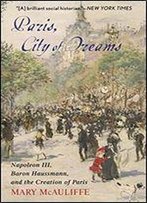
Compromised Positions: Prostitution, Public Health, And Gender Politics In Revolutionary Mexico City
by Katherine Elaine Bliss /
2001 / English / PDF
2.4 MB Download
To illuminate the complex cultural foundations of state formation in modern Mexico, Compromised Positions explains how and why female prostitution became politicized in the context of revolutionary social reform between 1910 and 1940. Focusing on the public debates over legalized sexual commerce and the spread of sexually transmitted disease in the first half of the twentieth century, Katherine Bliss argues that political change was compromised time and again by reformers' own antiquated ideas about gender and class, by prostitutes' outrage over official attempts to undermine their livelihood, and by clients' unwillingness to forgo visiting brothels despite revolutionary campaigns to promote monogamy, sexual education, and awareness of the health risks associated with sexual promiscuity.
In the Mexican public's imagination, the prostitute symbolized the corruption of the old regime even as her redemption represented the new order's potential to dramatically alter gender relations through social policy. Using medical records, criminal case files, and letters from prostitutes and their patrons to public officials, Compromised Positions reveals how the contradictory revolutionary imperatives of individual freedom and public health clashed in the effort to eradicate prostitution and craft a model of morality suitable for leading Mexico into the modern eraWhat did six destitute women, the Mexican president, a Spanish nightclub owner, and a public hospital have to do with revolution in late-1920s Mexico City? Quite a bit, according to Ami Aguallo, Julia Andrade, Margarita Mart- nez, Eufrasia Paramo, Dolores Analla, and Manuela Domenzan, all residents of the capital. When these six Mexico City prostitutes, who called themselves the daughters of disgrace, wrote Mexican president Plutarco Elas Calles to complain about the laws that governed the practice of sexual commerce in the nations largest city, they defined themselves as nationalists who were concerned for Mexicos welfare. In fact, they warned the president that not only were foreign men sexually exploiting Mexican women in illegal cabarets but also that the public hospital where prostitutes were sent to recover from sexually transmitted infections was, instead, a corrupt and unhealthy place in which the ideals of the Mexican Revolution were routinely compromised.











